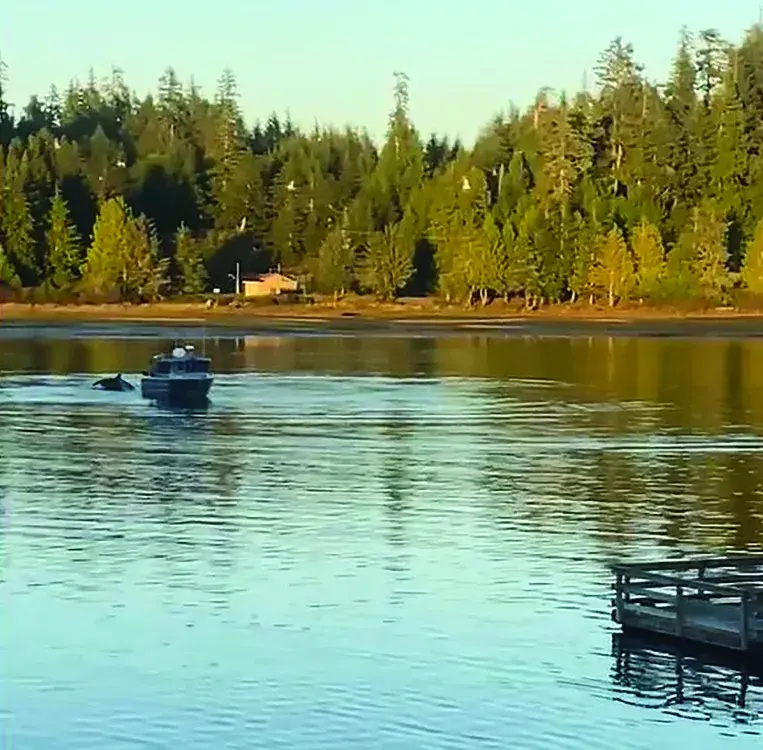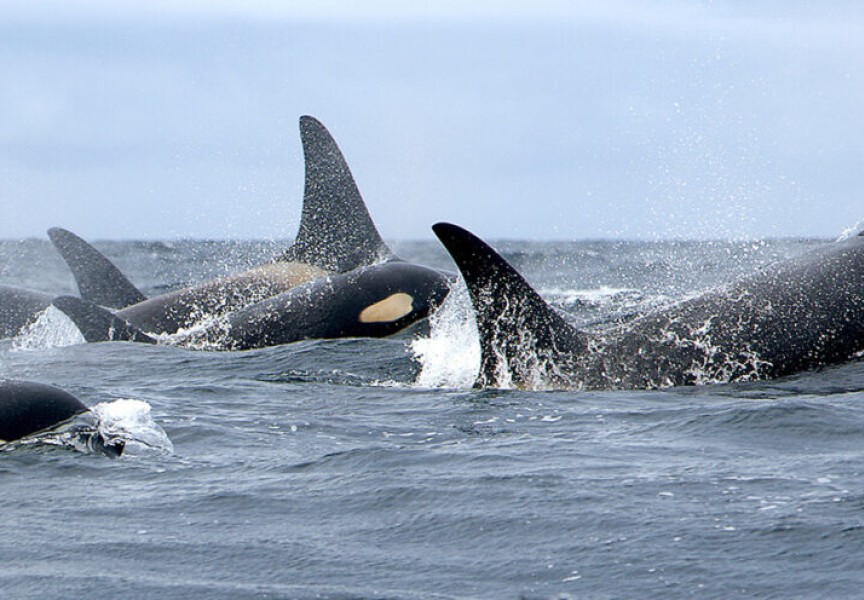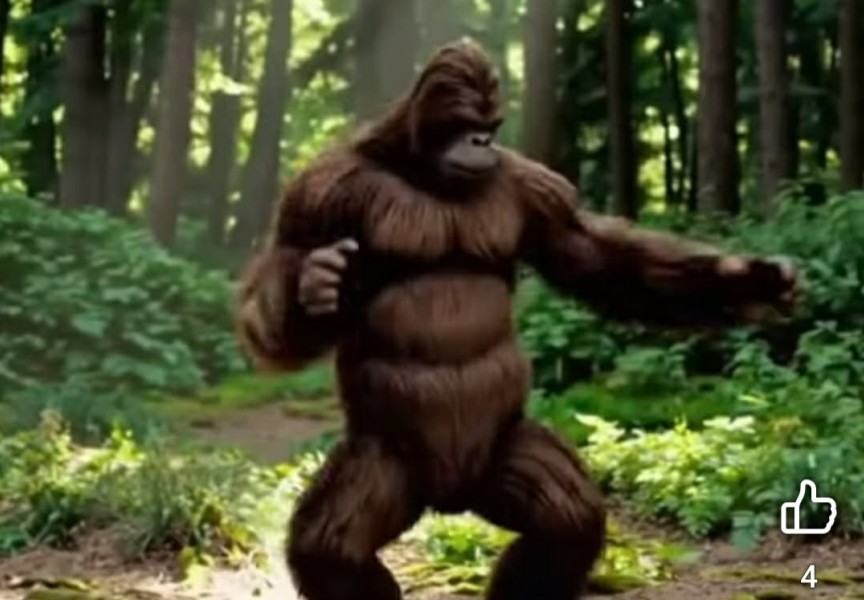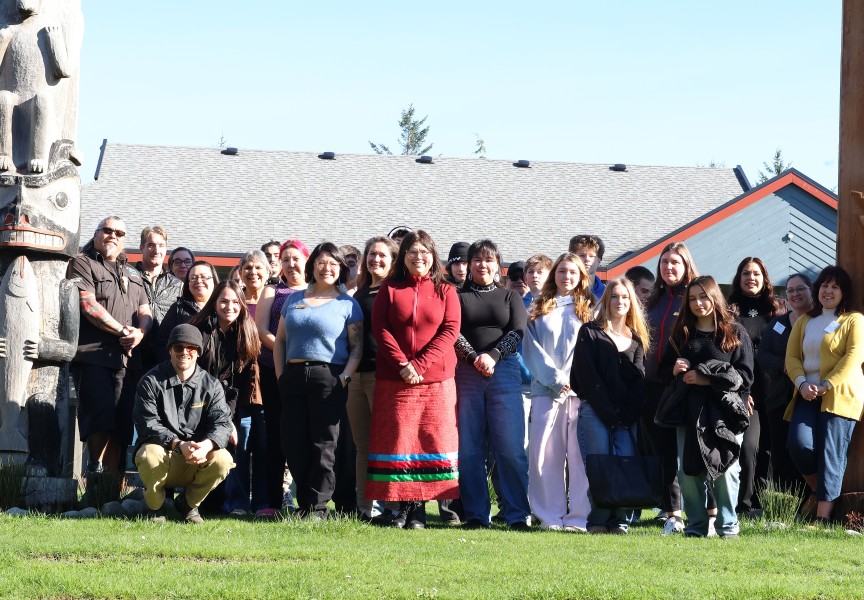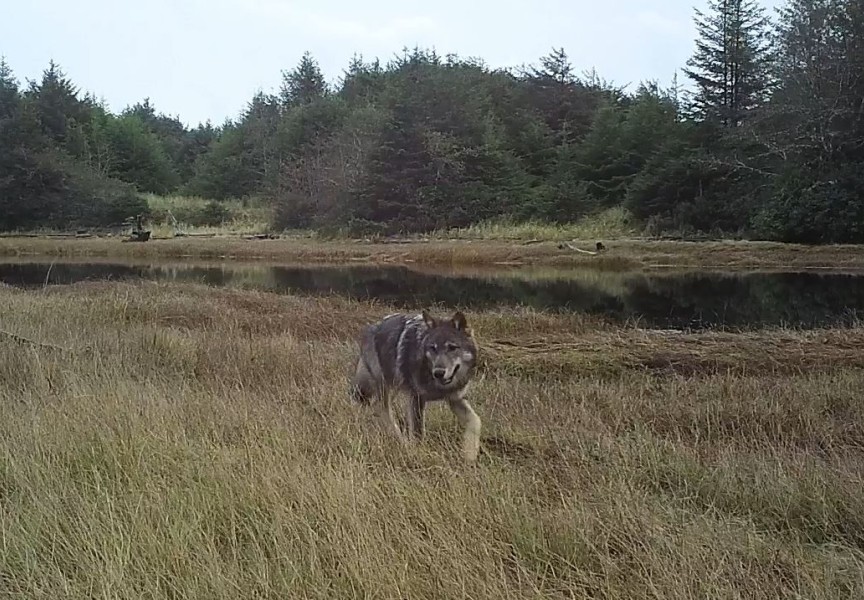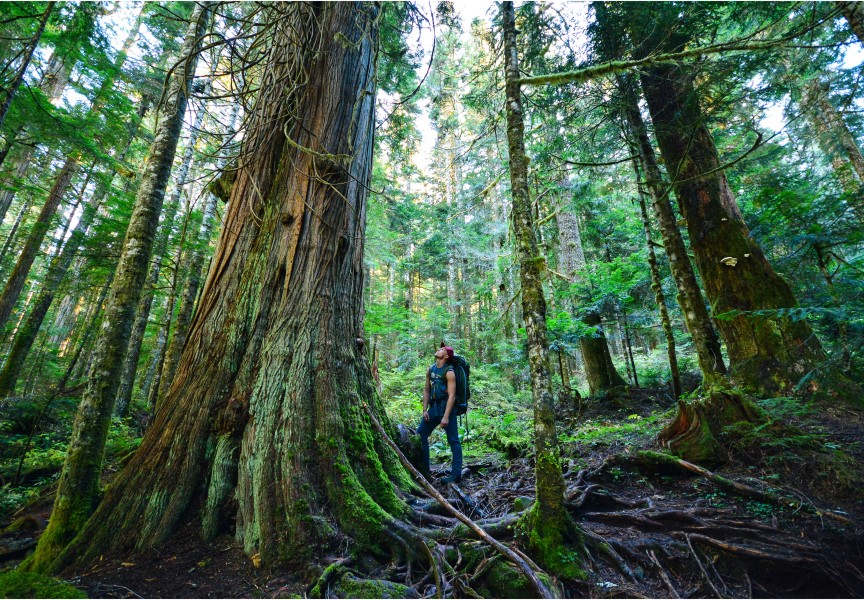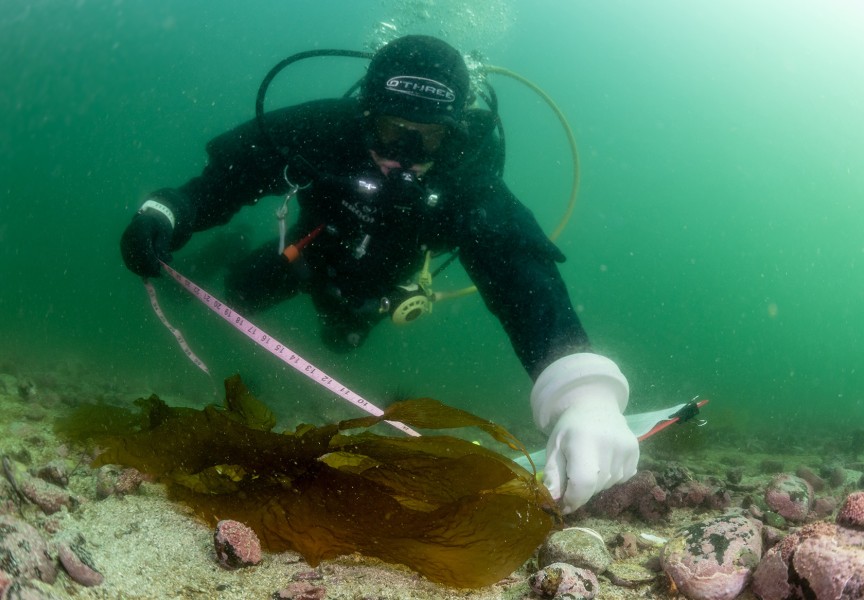A pod of transient killer whales recently ventured into the Ucluelet harbour, chasing a sea lion for dinner, but dinner got the best of the apex predators when a vessel seemingly interfered with the hunt.
Ucluelet Aquarium curator Laura Griffith-Cochrane captured the exciting scene on her phone from Alder Park, which overlooks the harbour.
“I think the sea lion was trying to use the boat as a refuge area and them moving definitely affected it, but it would be hard to say exactly what its affect was,” said Griffith-Cochrane, who witnessed the astonishing moment with her two children and husband. “But I think they took a very dangerous risk and they made a bad decision by moving. They should not have been running their motor at all near the family of killer whales. They should have turned it off and chilled. They should have become plankton.”
Griffith-Cochrane reported the incident to the Department of Fisheries and Oceans Canada (DFO).
“We have to take our responsibility seriously,” she said. “We share this world, and I think we have our human-community responsibilities and we also have our shared ecosystem responsibilities. It’s really important that we don’t forget that. The rules are there for a reason; to protect these killer whales.”
“I remember my grandad telling me that there used to be a gun mounted at the Comox harbour and they used to shoot killer whales when they would pass. It’s within my lifetime that the transients are starting to stabilize,” Griffith-Cochrane adds.
Under Canadian law, boaters in Canadian Pacific waters must stay 400 metres away from all killer whales in the waters south of Campbell River, down to the southern tip of Vancouver Island, up to an area just north of Ucluelet. Be Whale Wise, an educational partnership between B.C. and Washington state, recommends placing the engine in neutral and allowing the animals to pass if the vessel is not within the mandatory avoidance distance.
Yuułuʔiłʔatḥ local Tyson Touchie says the boat operator should have given the killer whales – or kakaw̓in as they’re called in Nuu-chah-nulth language – space.
“They deserve it. This harbour is so special because it’s safe enough for them to come in and train their young how to hunt. That’s special. They could do that anywhere, but they do it here. Sooner or later if there is interference, they’ll stop coming,” said Touchie.
“You treat them as a human,” Touchie shares. “The teachings that I got was that the kakaw̓in and qʷayac̓iik (wolf) are considered like a relative to humans. Those three share that same mentality as living in families, hunting, fishing… They are really highly respected within First Nations communities up and down the coast. They are just like us. We are practically the same. You can even see in our culture the transformation from killer whale to wolf, wolf to killer whale. There is always that respect within the nations.”
“When the killer whales come in here, you are lucky if you get to see it, but you definitely don’t interfere,” he added. “You could feel sorry for the seals, but that’s what they are there for. When the kakaw̓in come into the harbour, they are usually teaching their young ones to hunt. There was a young one in there. There was a mother and their baby. They are teaching them something really important in their life cycle and that is to hunt, so any interference in that is disrespectful.”
In Griffith-Cochrane’s video from Alder Park, the sea lion attempts to jump on the boat to save itself.
“Anything would. That survival instinct kicks in. But sooner or later, in my opinion, the killer whales are going to start thinking, ‘How do I get them off’?” said Touchie.
DFO is not pursuing any charges.
“Conservation and Protection fishery officers looked into this report and found nothing to indicate that the vessel was purposely trying to interact with or approach the orcas in Ucluelet harbour on September 4,” reads an email statement from DFO.

